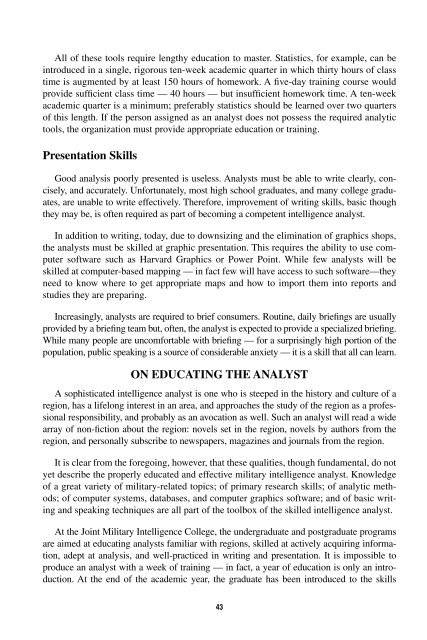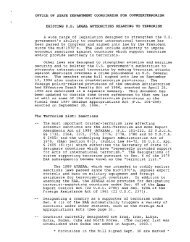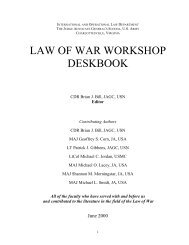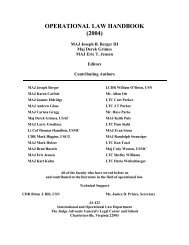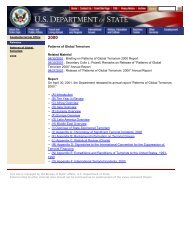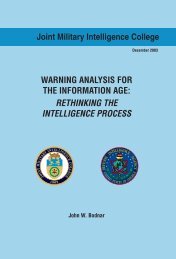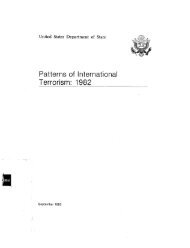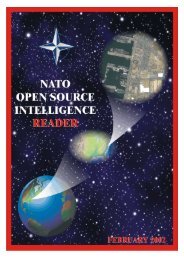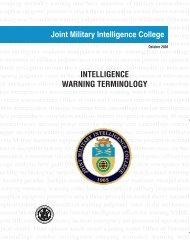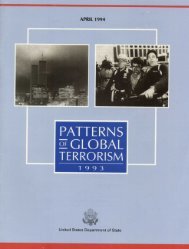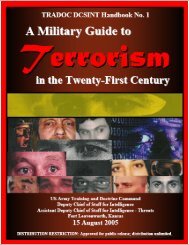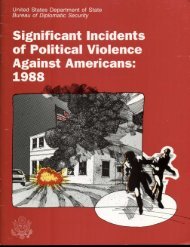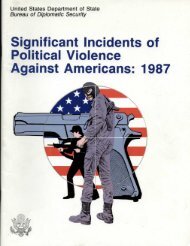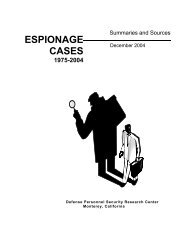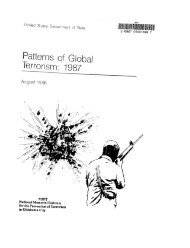learning with professionals - Higgins Counterterrorism Research ...
learning with professionals - Higgins Counterterrorism Research ...
learning with professionals - Higgins Counterterrorism Research ...
You also want an ePaper? Increase the reach of your titles
YUMPU automatically turns print PDFs into web optimized ePapers that Google loves.
All of these tools require lengthy education to master. Statistics, for example, can be<br />
introduced in a single, rigorous ten-week academic quarter in which thirty hours of class<br />
time is augmented by at least 150 hours of homework. A five-day training course would<br />
provide sufficient class time — 40 hours — but insufficient homework time. A ten-week<br />
academic quarter is a minimum; preferably statistics should be learned over two quarters<br />
of this length. If the person assigned as an analyst does not possess the required analytic<br />
tools, the organization must provide appropriate education or training.<br />
Presentation Skills<br />
Good analysis poorly presented is useless. Analysts must be able to write clearly, concisely,<br />
and accurately. Unfortunately, most high school graduates, and many college graduates,<br />
are unable to write effectively. Therefore, improvement of writing skills, basic though<br />
they may be, is often required as part of becoming a competent intelligence analyst.<br />
In addition to writing, today, due to downsizing and the elimination of graphics shops,<br />
the analysts must be skilled at graphic presentation. This requires the ability to use computer<br />
software such as Harvard Graphics or Power Point. While few analysts will be<br />
skilled at computer-based mapping — in fact few will have access to such software—they<br />
need to know where to get appropriate maps and how to import them into reports and<br />
studies they are preparing.<br />
Increasingly, analysts are required to brief consumers. Routine, daily briefings are usually<br />
provided by a briefing team but, often, the analyst is expected to provide a specialized briefing.<br />
While many people are uncomfortable <strong>with</strong> briefing — for a surprisingly high portion of the<br />
population, public speaking is a source of considerable anxiety — it is a skill that all can learn.<br />
ON EDUCATING THE ANALYST<br />
A sophisticated intelligence analyst is one who is steeped in the history and culture of a<br />
region, has a lifelong interest in an area, and approaches the study of the region as a professional<br />
responsibility, and probably as an avocation as well. Such an analyst will read a wide<br />
array of non-fiction about the region: novels set in the region, novels by authors from the<br />
region, and personally subscribe to newspapers, magazines and journals from the region.<br />
It is clear from the foregoing, however, that these qualities, though fundamental, do not<br />
yet describe the properly educated and effective military intelligence analyst. Knowledge<br />
of a great variety of military-related topics; of primary research skills; of analytic methods;<br />
of computer systems, databases, and computer graphics software; and of basic writing<br />
and speaking techniques are all part of the toolbox of the skilled intelligence analyst.<br />
At the Joint Military Intelligence College, the undergraduate and postgraduate programs<br />
are aimed at educating analysts familiar <strong>with</strong> regions, skilled at actively acquiring information,<br />
adept at analysis, and well-practiced in writing and presentation. It is impossible to<br />
produce an analyst <strong>with</strong> a week of training — in fact, a year of education is only an introduction.<br />
At the end of the academic year, the graduate has been introduced to the skills<br />
43


